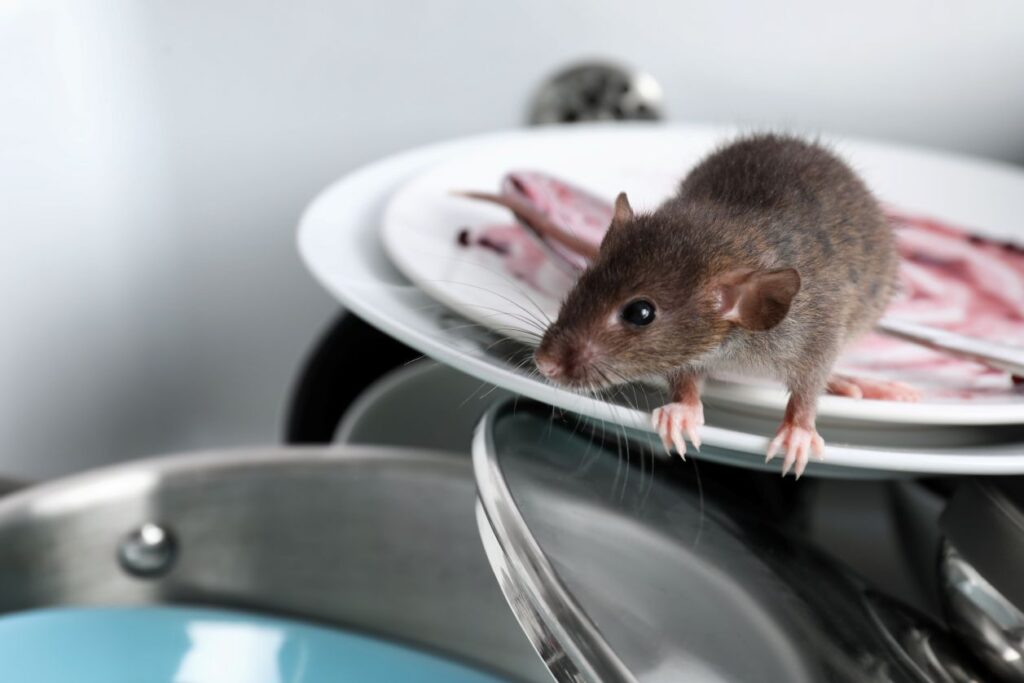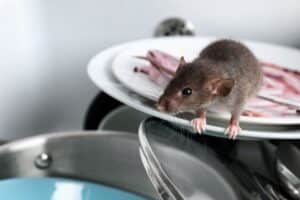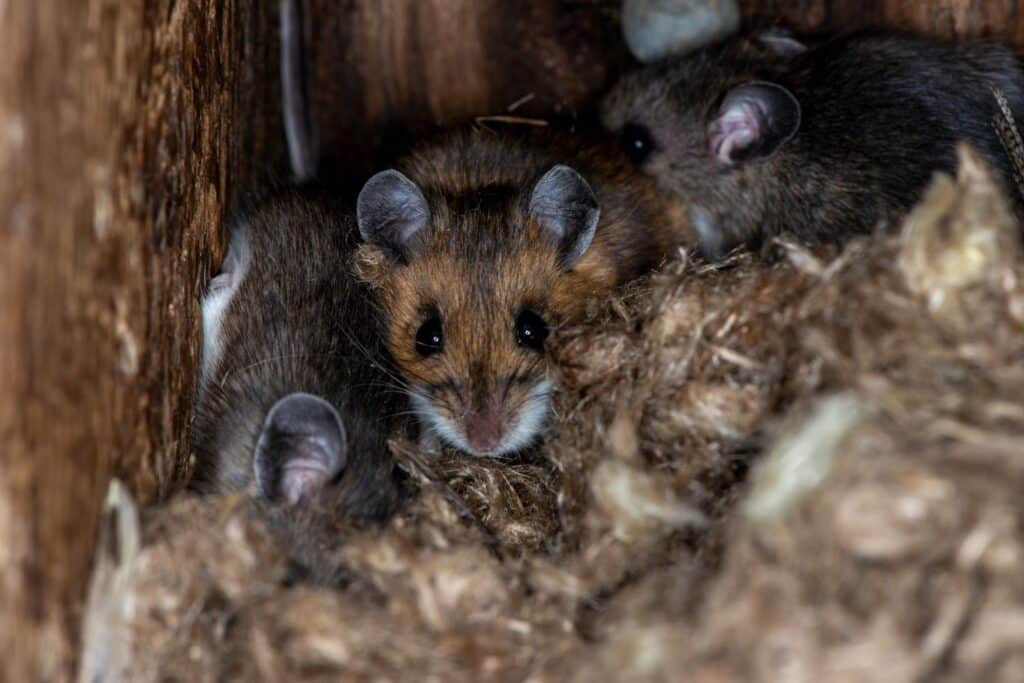

Mouse Infestation Basics: What Every Homeowner Needs to Know
When you get a mouse infestation, you know you are in for a rough time. Despite having a brain roughly the size of a pea, Mice can be alarmingly clever adversaries. They are clever thieves who can contaminate your food and your pets’ water with their waste and, worse, with harmful pathogens. They can cause fires with their nasty habit of chewing through your wires. And all of this damage can occur without you being aware you have a problem. Mice have an instinctual gift for hiding, able to grow to large populations inside your walls, beneath your floors, and above your ceilings before you even notice their presence. So, knowing all this, how do you know if you have a mouse problem?
How to Tell if You Have a Mouse Infestation
The presence of droppings is often the first sign of mouse activity. A single house mouse can leave 50–75 droppings per day, making droppings one of the most reliable indicators of their presence. Homeowners may find them in kitchen cabinets, pantries, basements, or along baseboards.
Other early warning signs include:
- Gnaw marks on wood, wiring, or food packaging.
- Scratching or scurrying sounds, especially at night.
- Shredded materials like paper or fabric used for nesting.
Mice build their nests in sheltered areas close to heat sources, such as behind kitchen appliances, inside wall voids, or near attics. They have no problem living just a few feet away from people as long as they have easy access to food and water.
Estimating the Number of Mice
While the number of droppings can give some clues about population size, determining exactly how many mice are in a home can be challenging. Pest control professionals rely on a combination of sightings, customer observations, and experience to gauge infestation levels.
Mice are not social animals like some rodents. Males are highly territorial, and a home with multiple mice will often have one dominant male along with several individual female nests. If you see one mouse, there is a strong chance there are others—especially if conditions are favorable for nesting.

How Quickly Mice Reproduce
A small mouse issue can escalate into a full infestation in no time. A single female mouse can have up to 10 litters of 5–6 young per year, and those young can start breeding when they are only six weeks old. Indoors, where conditions are ideal, mice breed all year long.
This rapid breeding cycle means that a minor mouse problem can become a serious infestation in just a few months if left untreated. In the Carolinas, infestations tend to spike in the colder months, as mice seek warm, safe places to escape winter weather.
Why Professional Mouse Control Service Is the Answer
DIY traps and baits can offer temporary relief but rarely eliminate the root problem. If you notice a strong musty odor, a large number of droppings, or persistent scratching noises, it’s time to call in experts like Anticimex Carolinas.
Mice are more than just a nuisance—they can be a serious health hazard. Their urine and feces can contaminate food and surfaces, and they are known to spread diseases like hantavirus and salmonella. On top of that, mice often bring fleas, mites, and ticks into homes, introducing even more potential health risks.
Long-Term Prevention and Control
The most effective way to manage mice is to prevent them from getting inside in the first place. While traps and baits can temporarily reduce the population, the infestation will return unless all entry points are properly sealed.
Homeowners often overlook common access points such as:
- Gaps under garage doors.
- Utility line penetrations (for gas, water, or electrical cables).
- Corner posts of siding.
- Holes where air conditioning lines enter the home.
Home remedies like peppermint oil or ultrasonic devices are often marketed as natural solutions, but they provide little to no real protection. Ultrasonic repellents have been proven ineffective, and while peppermint oil might deter rodents in high concentrations, it requires constant reapplication and is not a practical solution for infestations.
Protect Your Home with Anticimex Carolinas
A mouse problem can escalate fast—and once established, these pests are incredibly difficult to remove without professional help. At Anticimex Carolinas, we combine advanced mouse control services with expert exclusion strategies to eliminate infestations and prevent future issues.
Don’t wait for a small problem to become an expensive nightmare. Contact Anticimex Carolinas today to schedule a comprehensive rodent inspection and protect your home for good.
